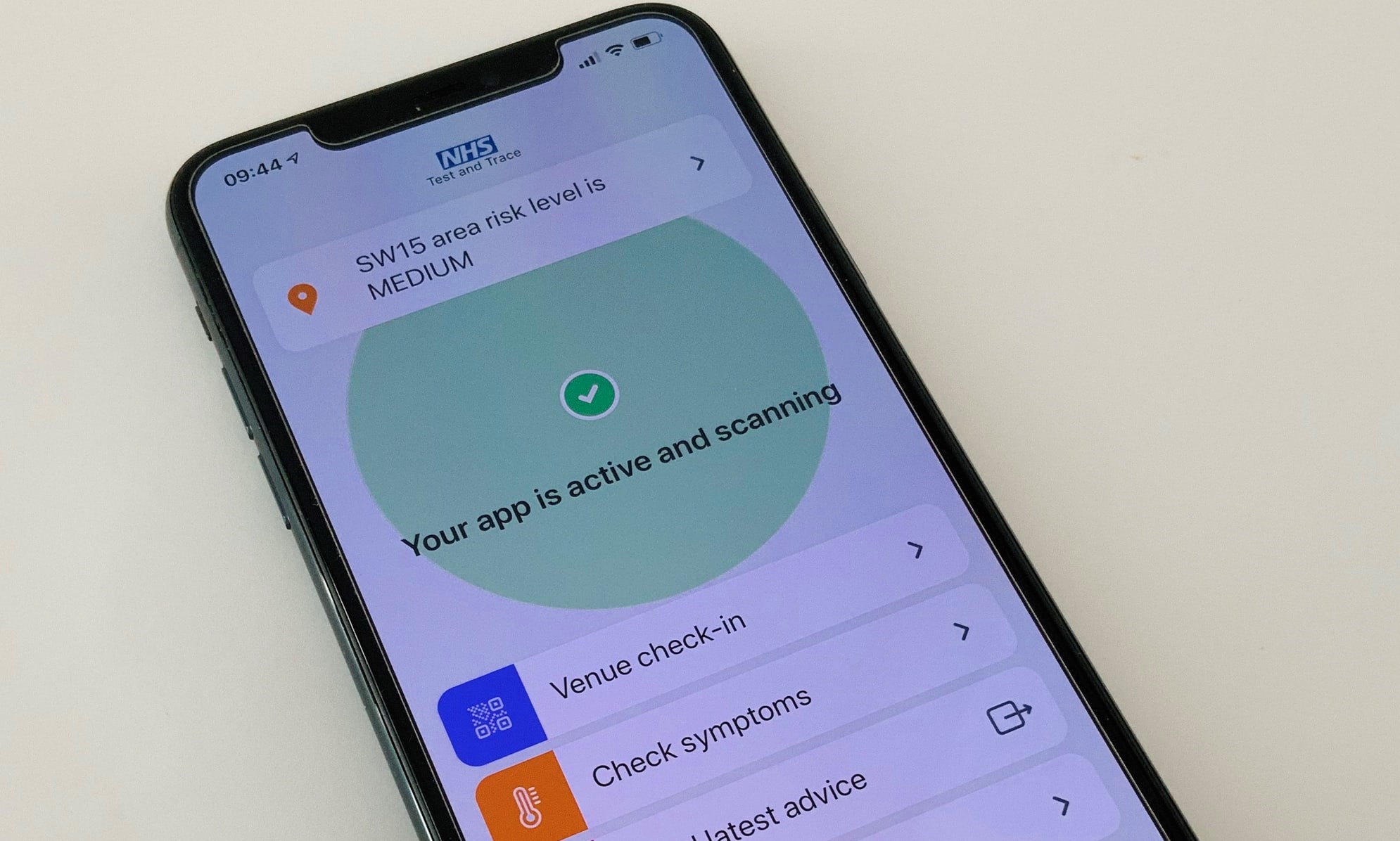BLOG
Relaxing of restrictions | How can retailers reduce risk?
Written by Nick Wilson on 23 July 2021

Step 4 of the government’s lockdown roadmap was activated in England on 19 July. Despite this, the pandemic isn’t over. The Delta variant is now rife, and with cases on the rise, retailers must remain vigilant to risk.
So, what does the easing of almost all legal restrictions mean for retailers, and what will ongoing risk management look like now?
First, what's changed?
As of 19 July, there are a number of relevant changes for retailers in England. To summarise:
- All social distancing restrictions have been removed, meaning retailers can operate without limits on shopper numbers or social distancing requirements.
- The legal requirement to wear a face covering has been lifted, though the government still “expects and recommends” them to be worn in crowded, enclosed spaces where people might come into contact with individuals they don’t normally meet, such as in shops.
- People must still self-isolate if advised to do so – double-vaccinated people with still have to follow this measure until 16 August.
- The government has concluded that it will not mandate the use of COVID-status certification as a condition of entry for shoppers and visitors to other settings at the present time.
England is the first to fully take the plunge. In Wales, restrictions were relaxed to Alert Level 1 on 17 July, though Welsh ministers are still undecided as to whether face coverings will continue to be law in shops.
Northern Ireland is due to ease some measures on 26 July, but there is no decision yet on reopening shops.
Scotland moved to Level 0 on 19 July; social distancing has been reduced from two metres to one metre in indoor public places, but face coverings are to remain compulsory in shops “for some time” – the government is, however, aiming to lift all COVID restrictions by 9 August.
Related Content
Do you need support?
Speak to us for an honest, no obligation chat on:
0345 226 8393 Lines are open 9am – 5pm
Working Safely guidance
Last year’s downloadable workplace guidance documents have been updated. New Working Safely during coronavirus guidance recommends sensible precautions to reduce workplace risk post-lockdown. Businesses are encouraged to:
- Ask staff and customers to clean their hands regularly.
- Continue cleaning surfaces that people touch regularly.
- Reduce unnecessary contact.
- Ensure proper ventilation.
- Encourage the wearing of face coverings, for example, through signage.
Sector-specific guidance for shops, branches and close contact services was published on 14 July and provides a useful starting point for retailers reviewing their health and safety measures.

Health and safety law
Though coronavirus legislation has been lifted, all employers have a fundamental legal obligation to protect their employees, customers and anyone else who may be affected by their activities.
The Management of Health and Safety at Work Regulations 1999 provide that, as a minimum, employers must:
- Appraise the risks in the work environment.
- Take action to eliminate or minimise them.
More specifically, under the Workplace (Health, Safety and Welfare) Regulations 1992, employers are required to provide:
- Ventilation (“Effective and suitable provision must be made to ensure every enclosed workplace is ventilated by a sufficient quantity of fresh or purified air.”)
- A clean workplace (“Every workplace, its furniture, furnishings and fittings must be kept sufficiently clean; and the floors, walls and ceilings of all inside buildings must be capable of being kept sufficiently clean.”)
- Washing facilities (“Suitable and sufficient washing facilities must be provided at readily accessible places; including supplying clean hot and cold, or warm, water, and soap or other suitable means of cleaning.”)
These measures have long been required – the pandemic has simply placed a greater emphasis on their provision because they are good at controlling the spread of COVID-19.
Practical steps
Some of the practical steps that can be taken in a shop work environment include:
Ventilation
This can reduce the risk of ‘airborne transmission’ (inhaling tiny virus particles or aerosols lingering in the air). However, it has minimal impact on droplets, typically encountered if you are close to someone or though touching surfaces.
Ventilation can be either mechanical (using fans and ducts) or natural (passive flow through openings such as doors, windows, vents, etc.) or a combination of the two.
If using mechanical ventilation, you will need to:
- Check this provides adequate ventilation, as you may need to increase the rate or supplement it with natural ventilation.
- Ensure the ventilation system is maintained in line with the manufacturer’s instructions.
- Avoid recirculating air from one place to another. Recirculation units including air conditioning can mask poor ventilation because they can make an area feel comfortable but don’t actually dispel aerosols. Recirculation units for heating and cooling that don’t draw in a supply of fresh air can remain in operation provided there’s a supply of outdoor air.
The Health and Safety Executive (HSE) has lots of helpful guidance on ventilation and air conditioning, explaining how you can identify poorly ventilated spaces and the steps you can take to improve ventilation.
Cleaning
Responsible retailers will continue with the more rigorous cleaning programme they have had in place to date – cleaning work areas, cleaning equipment between users, frequently cleaning and disinfecting objects/surfaces that are touched regularly, and even cleaning vehicles.
Employees should continue to practise good handwashing techniques and the facilities to do so must still be provided. As the virus hasn’t gone away, it makes little sense to remove hand-sanitising stations now just because you can.
Face coverings
Again, face coverings are now voluntary, but it’s recommended that they are worn in enclosed spaces. Indeed, many larger shops such as Tesco and Waterstones have said customers should continue to wear masks to protect staff and other shoppers.
Read our advice on whether you can require your staff to wear a face covering or download the Post-Lockdown FAQ on our Coronavirus Advice Hub for guidance on common questions.
Self-isolation
Despite the lifting of almost all remaining restrictions in England, testing, contact tracing and rules on self-isolation will remain in place. New rules regarding self-isolation are expected to come into effect on 16 August.
From this date, under 18s and those who are double-jabbed will no longer be required to self-isolate if they have been in close contact with someone with COVID-19, provided they take a PCR test ASAP and this comes back negative.
People who have a second vaccine dose close to 16 August are going to have to wait two weeks after their jab before the rules apply to them in order to allow the vaccine to take full effect.
In the meantime, large retailers already reporting absences of 20-25% and small retailers are likely to face particular disruption, as chances are if one or two employees test positive, most other staff will be deemed close contacts.
Our Employment Law Director has offered advice on whether employees must self-isolate if pinged, including whether employers can ask them to disable the app to avoid absences.

Next steps: 5 things to do now
With the onus now on employers, our advice is that you:
- Review your workplace risk assessment. An up-to-date template can be downloaded from our Coronavirus Advice Hub.
- Review your testing and vaccination policy. Though retail workers will likely have been back at work for some time, the easing of restrictions at the same time that infection rates are rising is likely to prompt questions and concerns, so it’s important to be prepared.
- Reconcile measures with Working Safely guidance so that you can point to best practice.
- Establish a clear policy on face coverings so that everyone understands your position.
- Ensure you remain compliant with the fundamental requirements of health and safety law, as outlined above.
As always, if you’re unsure about the best course of action or the legalities involved, seek specialist advice and support.
Not confident in your compliance? Let us take the pressure off
Coronavirus has highlighted the importance of good risk management. However, when you’re busy running a business, it’s not always possible to give health and safety the attention it deserves.
At the same time, you may be concerned that falling short could result in claims and criminal breaches, potentially harming your reputation and bottom line.
To find out how our fixed-fee Health & Safety support can help to keep your business compliant during the pandemic and beyond, call us on 0345 226 8393 or request your free consultation using the button below.
Sign up for the latest news & insights
Resources
Latest News & Insights

Hiring strategies to overcome the effects of rising unemployment in the UK
BLOG Written by Danielle Fargnoli-Read on 25 February 2026 Unemployment has crept up to its highest level in almost five years, with official figures now

Language of appreciation at work | Why individual motivation matters
BLOG Written by Becs Bridge, Director of Learning & Development, on 23 January 2026 In today’s competitive talent market, the organisations that retain top performers

Recruitment trends 2026 | 7 things to expect when hiring this year
BLOG Written by Danielle Fargnoli-Read on 22 January 2026 If there’s one thing recruitment has taught us over the past few years it is that

Breach of employment contract | What employers need to know to avoid Tribunal claims
BLOG Written on 15 January 2026 Breach of contract is a common concern for businesses, particularly during resignations, dismissals, or disputes over pay, notice, or

When does the Employment Rights Bill 2025 come into effect?
BLOG Written on 19 December 2025 It’s been the most talked-about topic in HR in 2025 and the question everyone’s been asking is, “When is

Workforce planning | Structuring your business for success
BLOG Written by Danielle Fargnoli-Read (updated 5 February 2026) Strategic workforce planning is a vital business process that’ll align your organisational needs with long-term goals.

Changes to day one unfair dismissal rights | New six-month protection explained
BLOG Written by Patrick Carroll-Fogg on 1 December 2025 Of the almost 75 individual tweaks and changes set to be introduced under the Employment Rights

Breaking down the Budget 2025 for employers
BLOG Written by Daniel Rawcliffe on 27 November 2025 The recently announced UK Budget 2025 is a challenging one for small businesses. While it covers

AI for interviews with job candidates | Balancing technology with a human touch
BLOG Written by Danielle Fargnoli-Read and Tracey Burke on 21 November 2025 Businesses using AI for interviews are reshaping the way UK businesses approach hiring,




